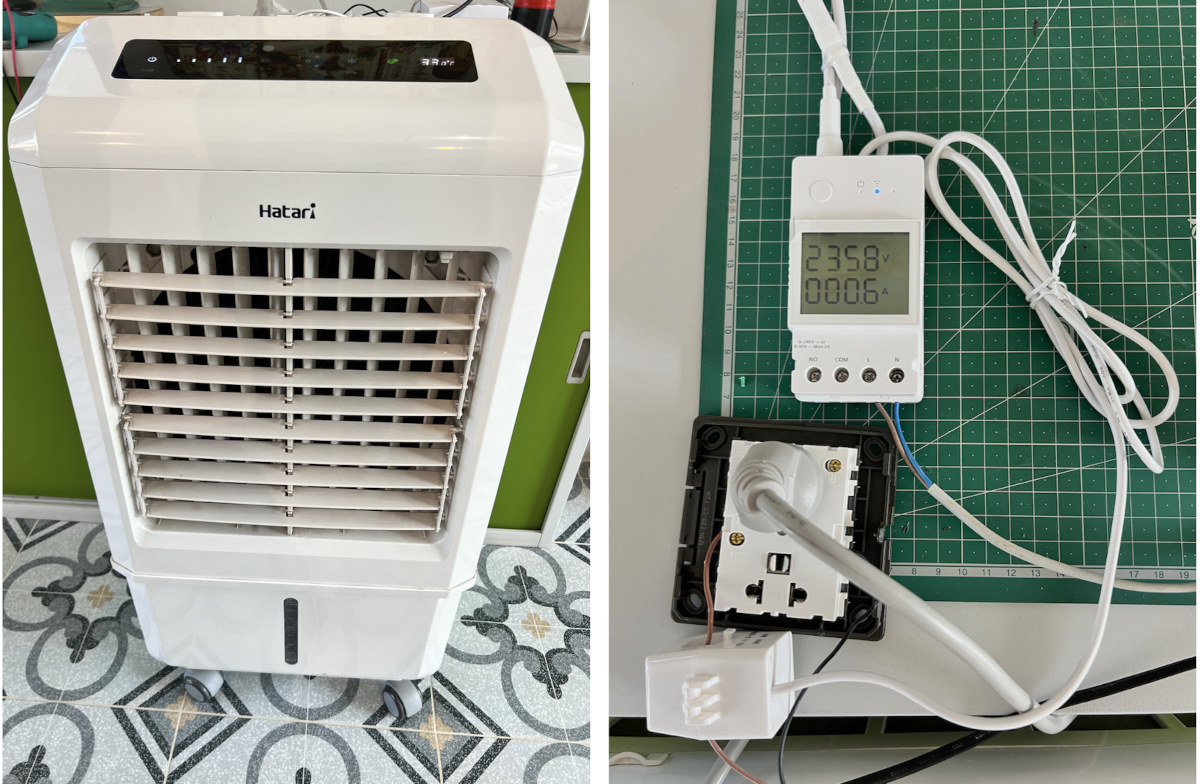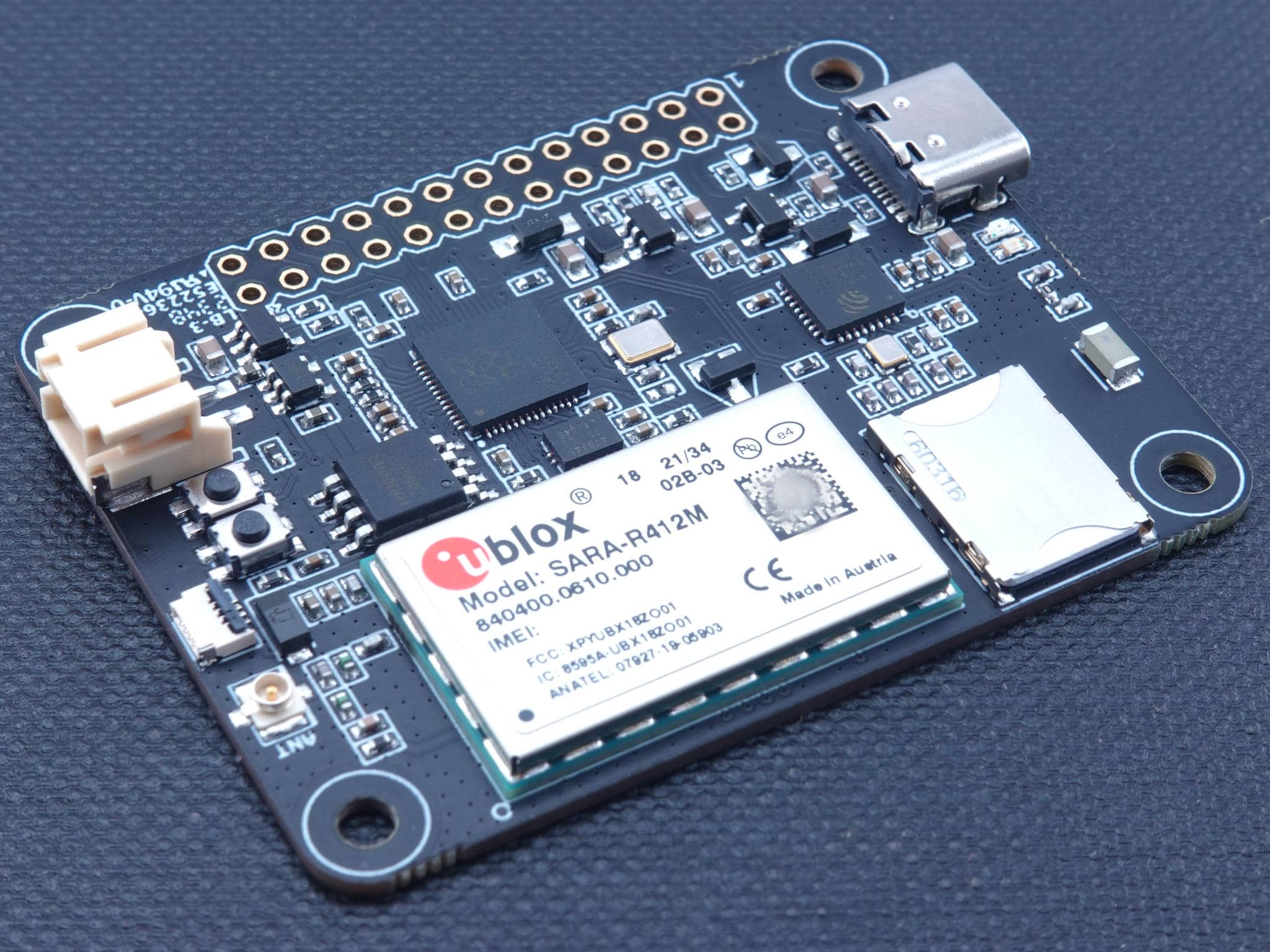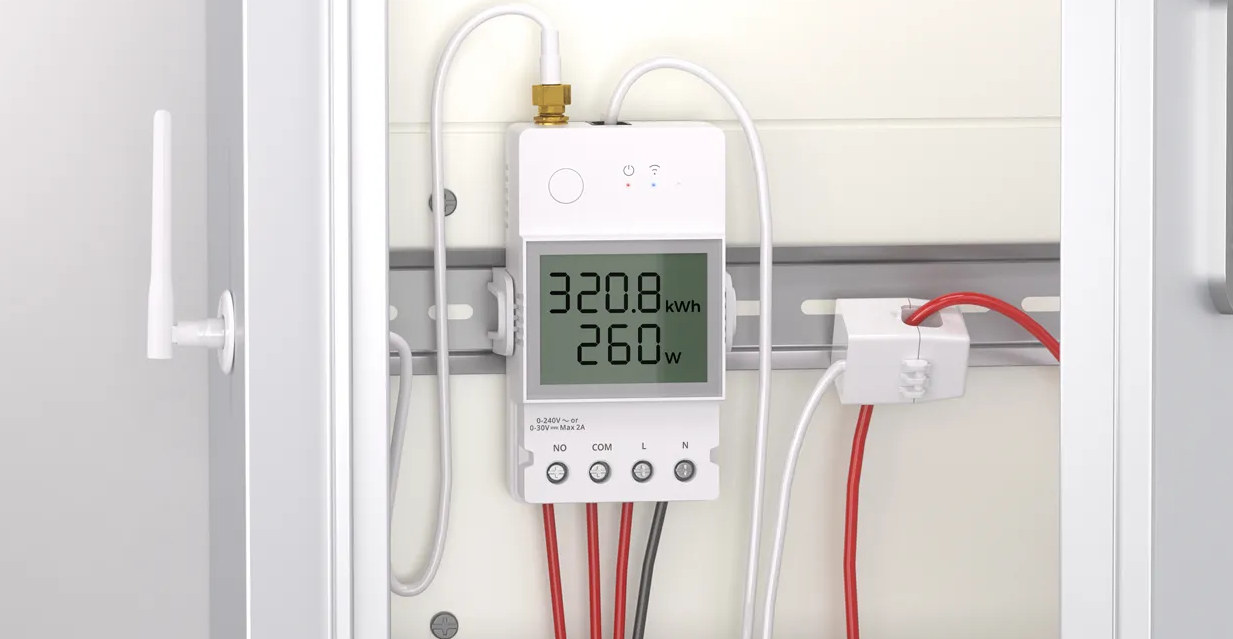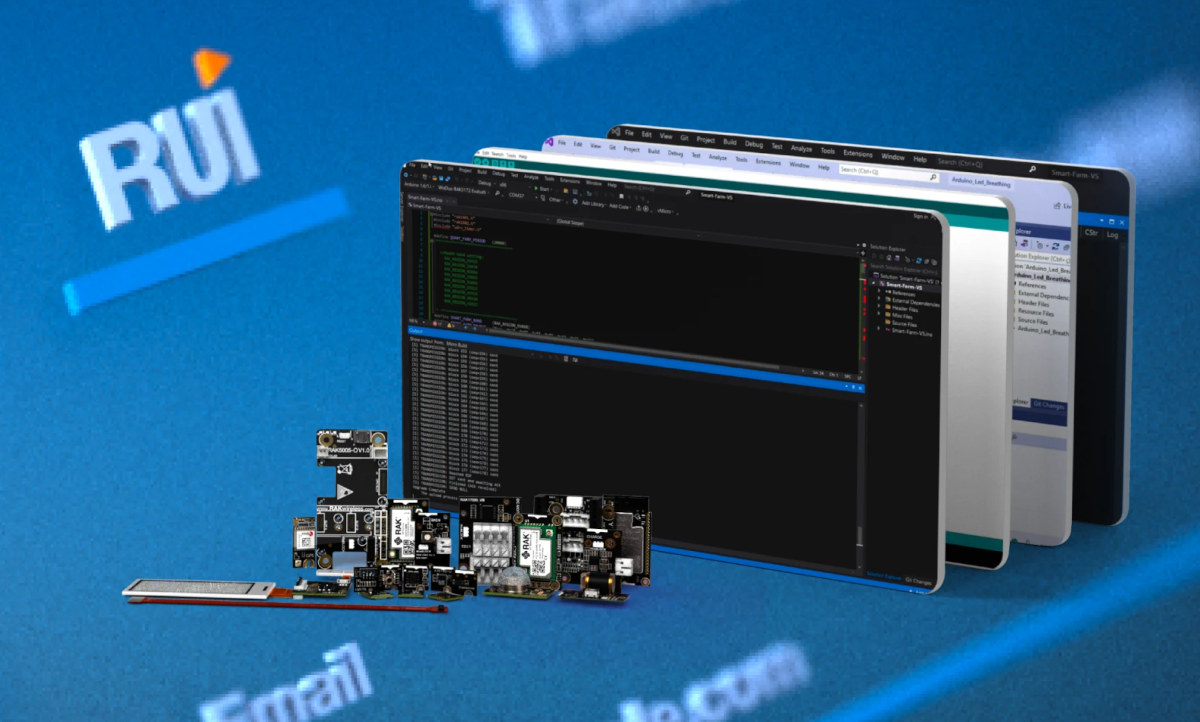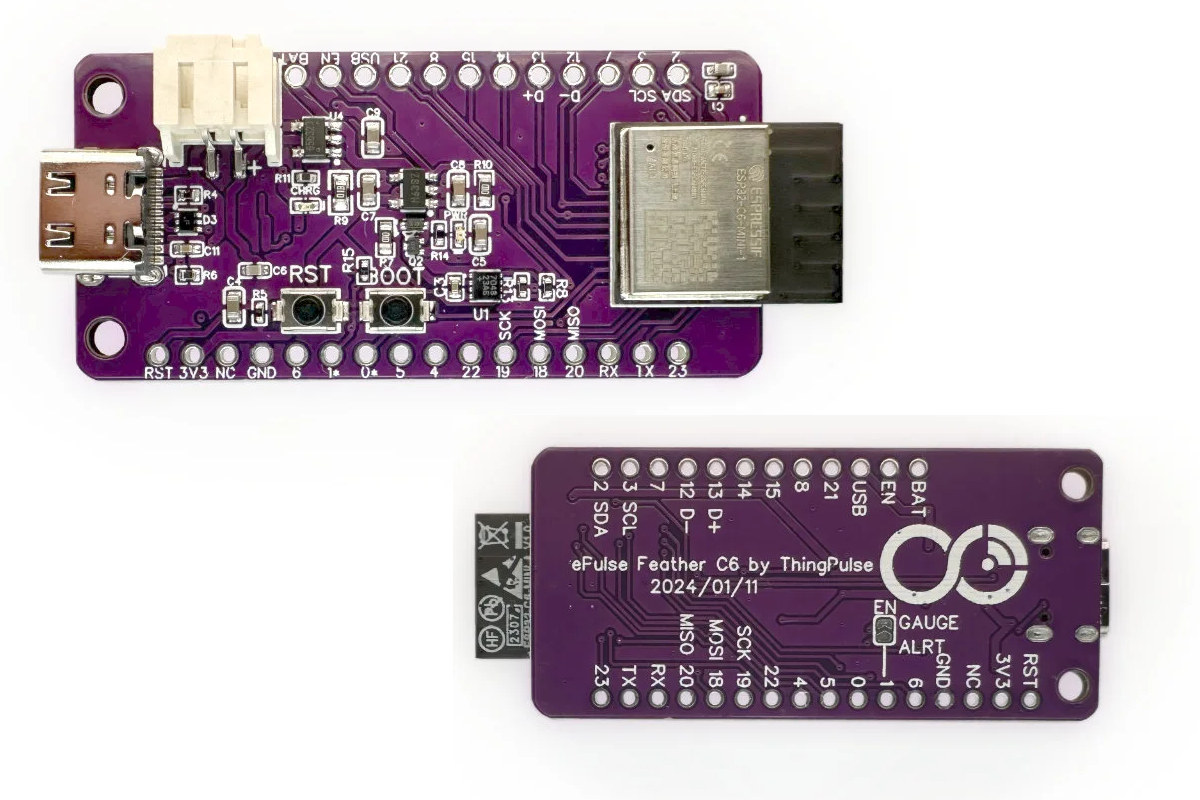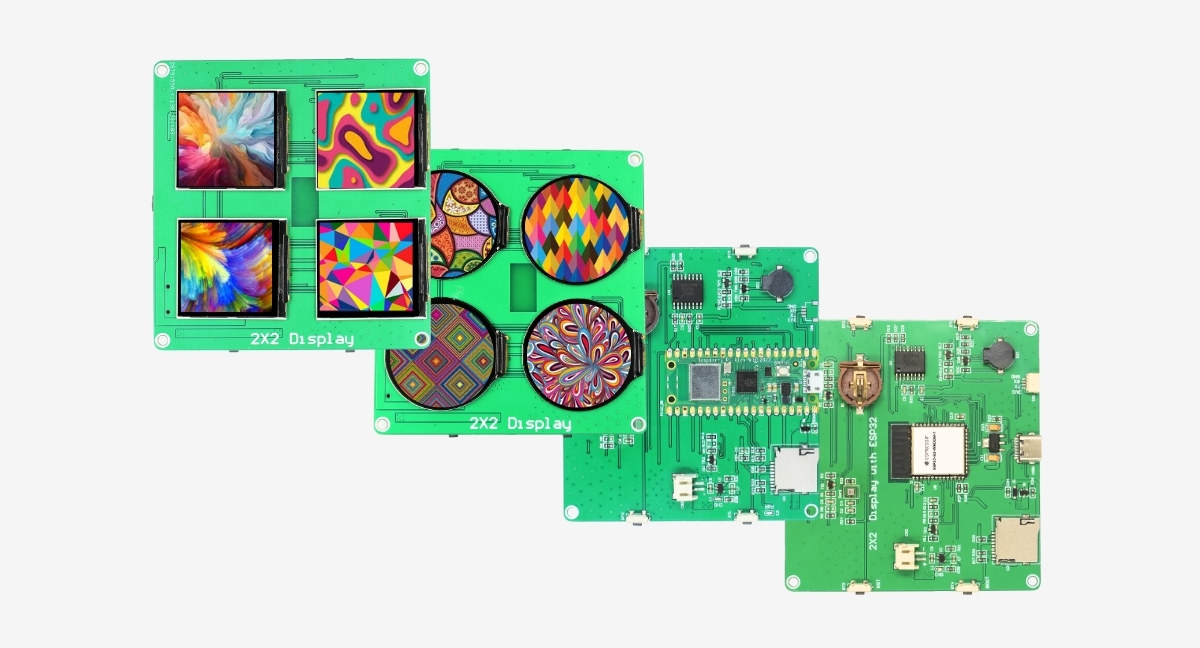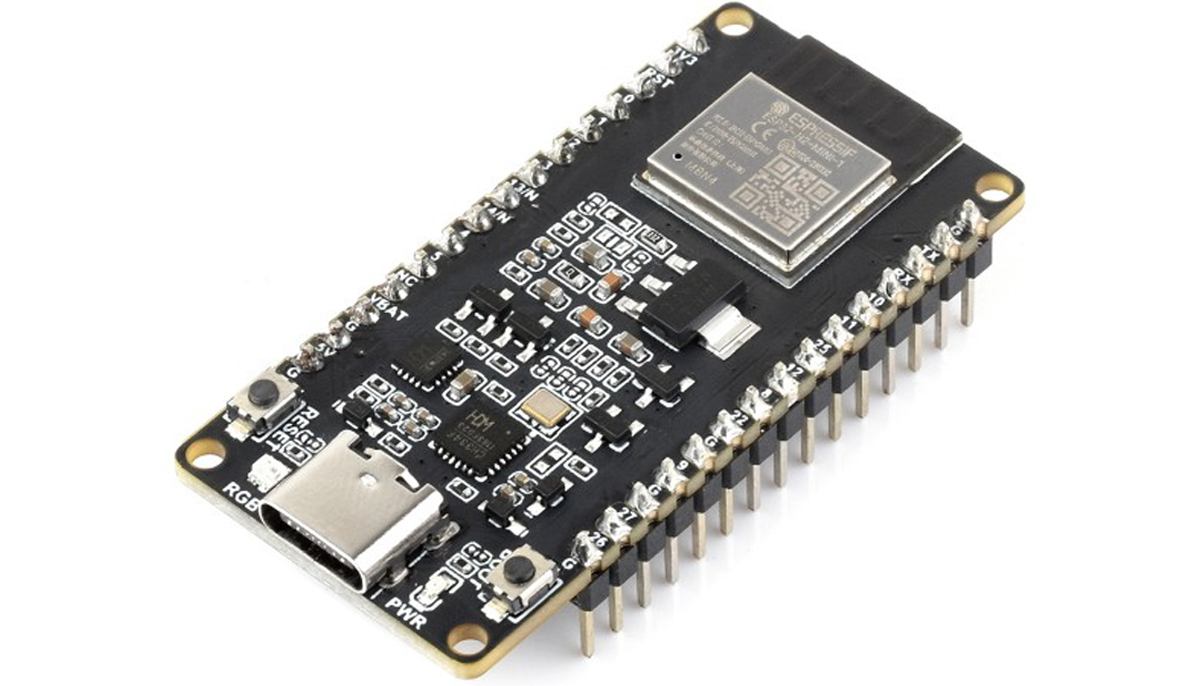The trend of measuring the energy usage of household electrical devices has become increasingly popular among Smart Home users in the past few years. We have received the new SONOFF POW Ring Smart Power Meter Switch device for review from ITEAD. Unlike SONOFF’s existing energy monitoring devices such as POW Elite, SPM, DualR3, POW3, and POW Origin, this new device, also called POWCT, utilizes a current transformer (CT) to measure the current flow, or total power being consumed. This method provides no physical contact with live wires and reduces the risk during installation. Additionally, it can measure currents of up to 100A, which is significantly higher than previous models. This makes it suitable for measuring electricity usage at the main circuit breaker, energy generated from solar panels, or even for Electric Vehicle (EV) home chargers. The SONOFF POW Ring, which we are testing today, is not only a Smart Power […]
The RP2040 Connectivity Board — An IoT solution combining LTE, Wi-Fi, and BLE into a single platform
iLABs (Invector Labs), a European embedded equipment manufacturer, has released a new device, the RP2040 Connectivity Board, an IoT development board that is based on Raspberry Pi’s signature microcontroller IC, the RP2040. The RP2040 Connectivity Board features key IoT connectivity options such as LTE, Wi-Fi, and BLE (Bluetooth Low Energy). It is compatible with both Arduino and PlatformIO and is designed for professional and hobbyist users with wide-ranging connectivity needs. The SARA-R412M series module from u-blox handles cellular communication (LTE) and can be configured to enable multi-regional coverage in both GSM and LTE-M/NB-IoT radio transmissions. It features a unique and immutable root of trust and supports IoT security as a service. The RP2040 Connectivity Board also includes an Espressif ESP32-C3FN4 chip for Wi-Fi/BLE communication based on a RISC-V microcontroller core and implementing a Wi-Fi subsystem that complies with the IEEE 802.11b/g/n standard and supports various operating modes. The Bluetooth Low […]
$35 SONOFF POW ring smart power meter (POWCT) safely supports up to 100A
SONOFF POW Ring smart power meter is the first CT clamp-based WiFi power meter from ITEAD. It is designed for installation in an electric cabinet to measure whole-house power consumption with up to 100A current. The power meter relies on an ESP32 microcontroller for control and wireless connectivity with a range of up to 130 meters thanks to an external high-gain antenna. It is supported by the usual eWelink mobile app that also enables integration with Google Home, Amazon Alexa, and IFTTT services, and ITEAD also mentions integration with the Home Assistant open-source framework. SONOFF POW Ring (POWCT) specifications: MCU – ESP32 WiFi and Bluetooth microcontroller Connectivity – 2.4 GHz WiFi 4 (802.11b/g/n) with SMA antenna connector for an external antenna to be placed outside of the electrical cabinet Current transformer (CT) interface type – RJ9 Current transformer detection range – 0 to 100A Measurement category – CAT II 0-100A […]
RAKwireless open sources RUI3 multi-target IoT development platform
RAKwireless has made its RUI3 IoT software development platform open-source so that customers or users can implement “nice-to-have” features on top of the features already implemented by the company which could make it even more versatile in a wider range of IoT scenarios. Introduced in 2022, the RAK Unified Interface v3, or RUI3 for shorts, is a modular IoT platform based on the Arduino SDK with additional functions for IoT connectivity and low power that supports a variety of devices and applications. So developers can learn the language, code once, and use the same software on multiple WisBlock core platforms including Nordic Semi nRF52, STM32, ESP32, and Raspberry Pi RP2040 instead of having to juggle between different the Arduino BSP, the ESP-IDF framework, Nordic nRF Connect SDK, or Raspberry Pi C SDK. Users could already use the RUI3 firmware with the RAK3172 (STM32), RAK4630/RAK4631 (nRF52), or RAK11720 (Apollo3) WisBlock Core […]
Golioth expands its free tier for developers with unlimited IoT devices, OTA updates, 1GB bandwidth
When we first wrote about the Golioth IoT development platform with ESP32 and nRF9160 devices support in 2022, we noted they offered a free Dev Tier account for up to 50 devices, 10 MB of LightDB data with a 7-day retention policy, and other limitations. The company has now decided to remove many of the limitations from the free developer tier without any limit to the number of IoT devices and also added other benefits: Unlimited Device Connections: Empowering developers to scale projects without constraints. Over-the-air (OTA) Device Firmware Updates (DFU) with 1GB monthly bandwidth 1,000,000 Monthly Log Messages up to 200MB Free data retention Time series – 30 days Logs: 14 days The main limitations compared to paid plans are that only one project can be created and a single seat (single loading) is available, so it’s not possible to have a team of users with different permissions like […]
ePulse Feather C6 – An ESP32-C6 development board with Adafruit Feather form factor, LiPo battery support
ThingPulse ePulse Feather C6 is a new ESP32-C6 development board with WiFi 6, BLE5, Zigbee, Thread, and Matter connectivity that follows the Adafruit Feather form factor and supports LiPo battery charging through a charger IC and a fuel gauge. Just like its predecessor called ePulse Feather, the ePulse Feather C6 is optimized for low power consumption but replaces an ESP32-WROVER-E-N8R8 module but an ESP32-C6-MINI-1 with a 802.15.4 radio for Zigbee, Thread, and Matter, as well as 2.4 GHz WiFi 6 and Bluetooth 5.3 LE connectivity. ePulse Feather C6 specifications: Wireless module – ESP32-C6-MINI-1 SoC – ESP32-C6H4 32-bit RISC-V microprocessor up to 160 MHz with 320KB ROM, 512KB HP SRAM, 16KB LP SRAM, 4MB flash Wireless – 2.4 GHz WiFi 6 with Target Wake Time (TWT) support, Bluetooth 5.3 LE and Mesh, 802.15.4 radio with Zigbee, Thread, and Matter PCB Antenna USB – 1x USB Type-C port for power/charging and programming […]
2×2 Quad Display Board uses Raspberry Pi Pico W or ESP32-S3-WROOM-1 module to drive four displays (Crowdfunding)
SB Components’ 2×2 Quad Display Board is an MCU development board fitted with either a Raspberry Pi Pico W board or an ESP32-S3-WROOM-1 module used to drive four small color displays in square or round shapes. The board specifically features either four 1.54-inch square TFT displays or four 1.28-inch round displays, a microSD card, an RTC with coin-cell battery holder, and a USB-C port for power and programming, plus a few buttons. It may feel like it’s coming out of the but-why-because-we-can department, but the company expects it to be used for signage, interactive displays, art projects, portable devices, data loggers, education, and more. 2×2 Quad Display Board specifications: Main control (one or the other) Raspberry Pi Pico W MCU – Raspberry Pi RP2040 dual-core Cortex-M0+ microcontroller @ 133 MHz with 264KB SRAM Storage – 2MB QSPI flash Wireless – WiFi 4 and Bluetooth LE 5.2 USB – 1x Micro […]
Waveshare ESP32-H2-DEV-KIT-N4-M – A Low-cost ESP32-H2 development board going for $6.65
The Waveshare ESP32-H2-DEV-KIT-N4-M is a development board based on the ESP32-H2, available for only $6.65 on Aliexpress, but you’ll also find it on Amazon and Waveshare’s official store. This is a significant price drop compared to last year’s official Espressif ESP32-H2-DevKitM-1 board, which was priced at $10 without including shipping costs and with a similar design. In 2021, Espressif Systems introduced the ESP32-H2 to the world. However, it wasn’t until 2023 that they released their first development board. Since then, there haven’t been many products built around this new module. Some exceptions include the Olimex ESP32-H2-DevKit-LiPo, LILYGO T-Panel, and the ESP Thread Border Router/Zigbee Gateway board, all of which feature the ESP32-H2 chip. Waveshare ESP32-H2-DEV-KIT-N4-M specifications: Wireless module – ESP32-H2-MINI-1 MCU – Espressif Systems ESP32-H2 32-bit RISC-V microcontroller at up to 96 MHz with 320 KB SRAM, 128 KB ROM, 4 KB LP memory, Bluetooth 5.2 LE/Mesh, and 802.15.4 (Zigbee/Thread/Matter) radios. […]


